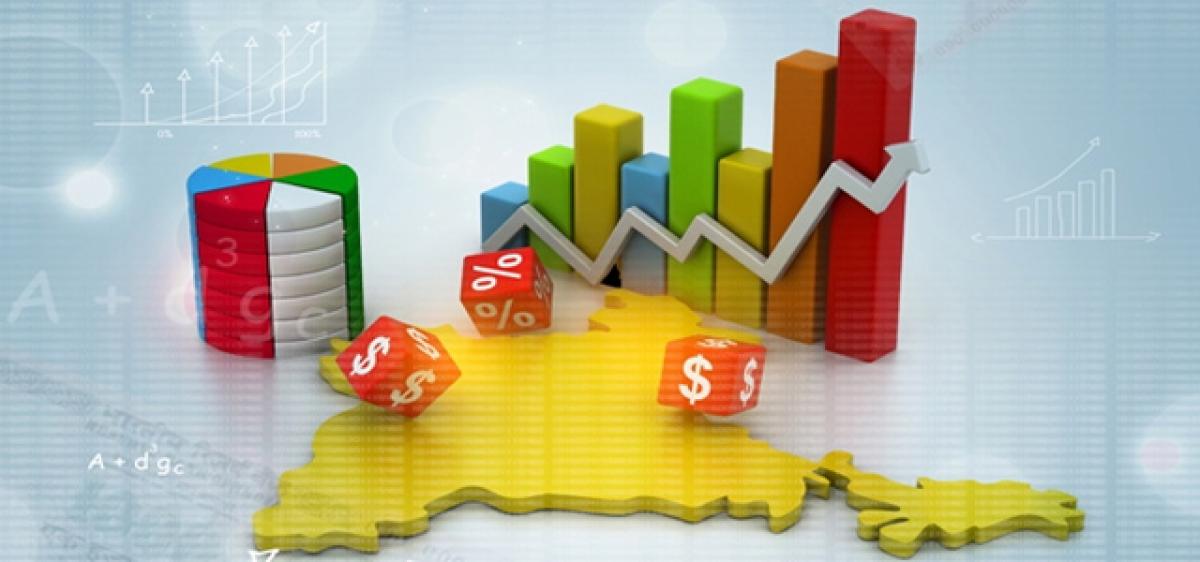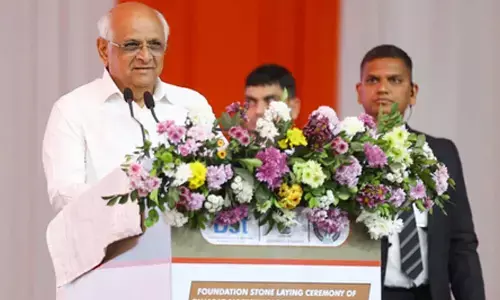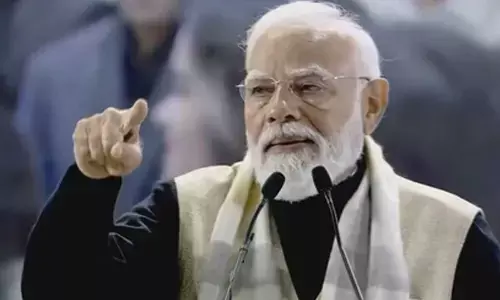IMF India forecast to 7.6%

The IMF, on Tuesday, projected a robust 7.6 % growth rate for India in 2016 and 2017, but asked the government to continue reforming its tax system and eliminate subsidies to provide more resources for investments in infrastructure, education and healthcare.
Washington: The IMF, on Tuesday, projected a robust 7.6 % growth rate for India in 2016 and 2017, but asked the government to continue reforming its tax system and eliminate subsidies to provide more resources for investments in infrastructure, education and healthcare.
"India's GDP will continue to expand at the fastest pace among major economies, with growth forecast at 7.6 % in 2016 17," the International Monetary Fund (IMF) said, a slight upward revision of 0.2 from its July projections. "India's economy continued to recover strongly, benefiting from a large improvement in the terms of trade, effective policy actions, and stronger external buffers, which have helped boost sentiment," the IMF said in its latest report on the World Economic Outlook.
At the same time, the IMF asked New Delhi to continue reform of its tax system and eliminate subsidies to provide more resources for investments in infrastructure, education and health care.
In 2015, India's GDP grew at 7.6 %, as compared to China's 6.9 %. India remains the fastest growing major economies of the world, as IMF has projected 6.6 % and 6.2 % GDP growth rate for China for the year 2016 and 2017 respectively. Global growth is projected to slow to 3.1 % in 2016 before recovering to 3.4 % in 2017. The forecast, revised down by 0.1 percentage point for 2016 and 2017 relative to April, reflects a more subdued outlook for advanced economies following the June UK referendum in favour of leaving the European Union (Brexit) and weaker-than-expected growth in the United States, the IMF said. In emerging and developing Asia, growth is projected to remain strong, the report said.
On the other hand, in China, the economy is expected to grow by 6.6 % in 2016 on the back of policy support, slowing to 6.2 % in 2017 absent further stimulus. The IMF said, India's economy has benefited from the large terms of trade gain triggered by lower commodity prices, and inflation has declined more than expected. Nevertheless, underlying inflationary pressures arising from bottlenecks in the food storage and distribution sector point to the need for further structural reforms to ensure that consumer price inflation remains within the target band over the medium term, it said.
"Important policy actions toward the implementation of the goods and services tax have been taken, which will be positive for investment and growth," IMF said.
This tax reform and the elimination of poorly targeted subsidies are needed to widen the revenue base and expand the fiscal envelope to support investment in infrastructure, education, and health care, it underscored.
"More broadly, while several positive measures have been undertaken over the past two years, additional measures to enhance efficiency in the mining sector and increase electricity generation are required to boost productive capacity," the report said.
Additional labour market reforms to reduce rigidities are essential for maximizing the employment potential of the demographic dividend and making growth more inclusive.
"Continued efforts by the Reserve Bank of India to strengthen bank balance sheets through full recognition of losses and increasing bank capital buffers remain critical for improving the quality of domestic financial intermediation," IMF said.
According to IMF projections, India is expected to grow at 8.1 % in 2021. The IMF said global economic growth will remain subdued this year following a slowdown in the United States and Britain's vote to leave the European Union.
It forecasts a slight pickup in 2017 and beyond, driven mainly by emerging market strength. "Taken as a whole, the world economy has moved sideways," said IMF chief economist and economic counsellor Maurice Obstfeld. "We have slightly marked down 2016 growth prospects for advanced economies while marking up those in the rest of the world," he said.
The report highlighted the precarious nature of the recovery eight years after the global financial crisis.
It raised the specter that persistent stagnation, particularly in advanced economies, could further fuel populist calls for restrictions on trade and immigration. Obstfeld said such restrictions would hamper productivity, growth, and innovation. "It is vitally important to defend the prospects for increasing trade integration," Obstfeld, said.
"Turning back the clock on trade can only deepen and prolong the world economy's current doldrums," he added.
Advanced economies will expand just 1.6 % in 2016, less than last year's 2.1 % pace and down from the July forecast of 1.8 %. The euro area will expand 1.7 percent this year and 1.5 % next year, compared with 2.0 % growth in 2015. Growth in Japan, the world's No. 3 economy, is expected to remain subdued at 0.5 % this year and 0.6 % in 2017.
In the near term, government spending and easy monetary policy will support growth; in the medium term, Japan's economy will be hampered by a shrinking population, it said.
IMF said US growth is likely to pick up to 2.2 % next year as the drag from lower energy prices and dollar strength fades.
















